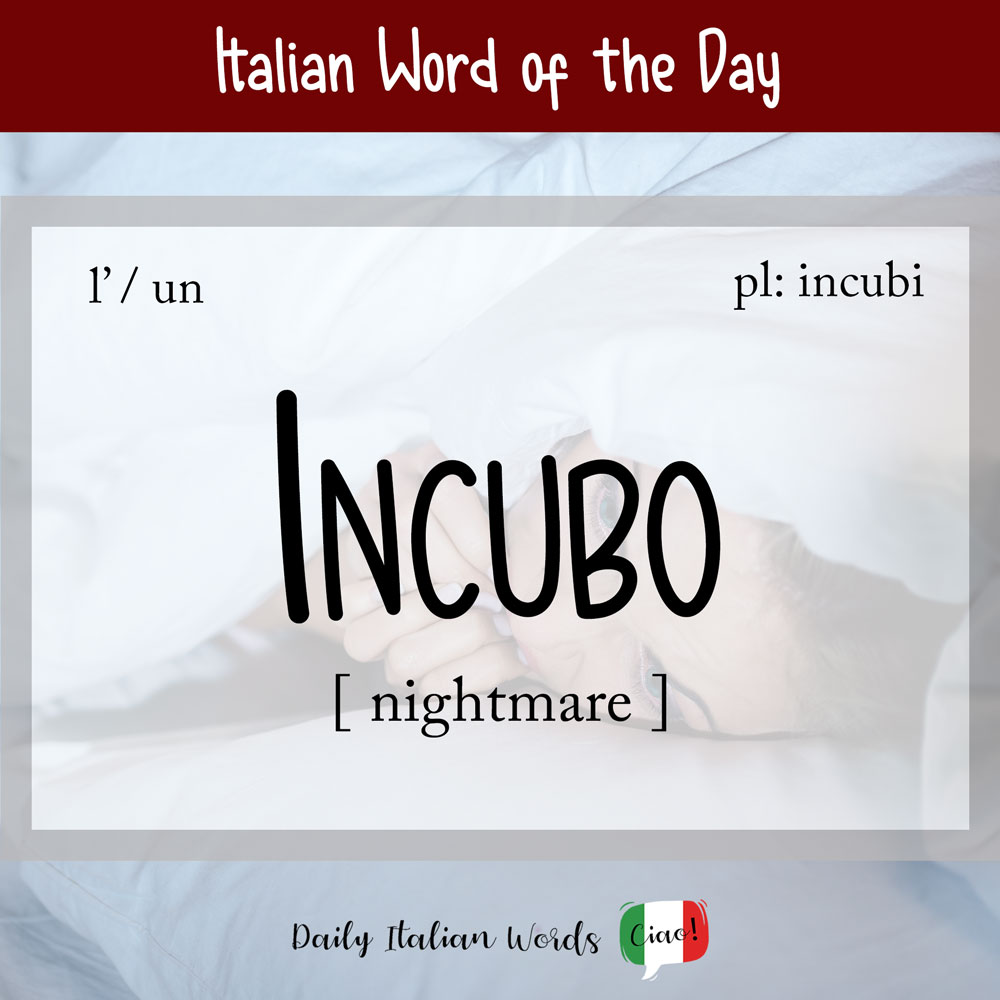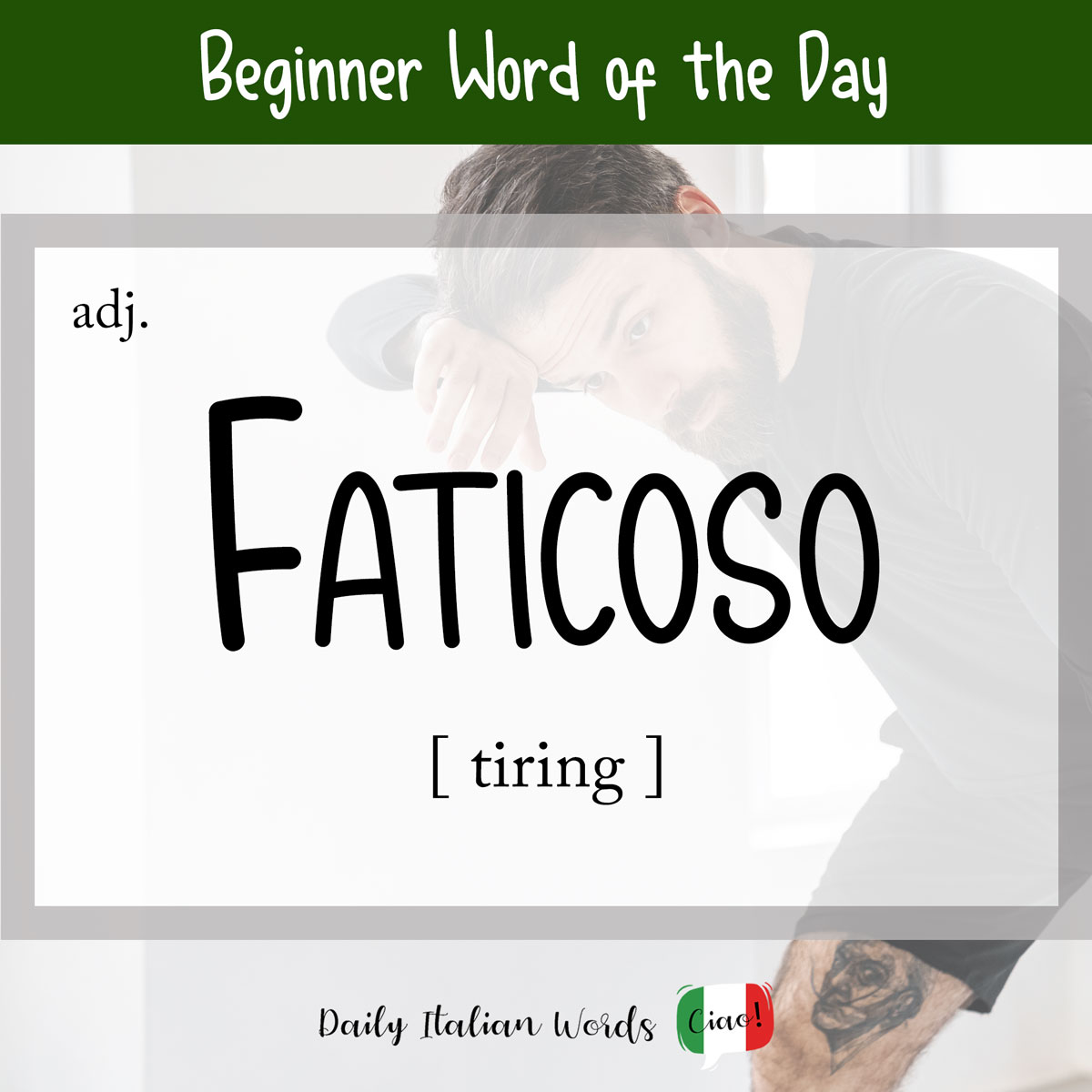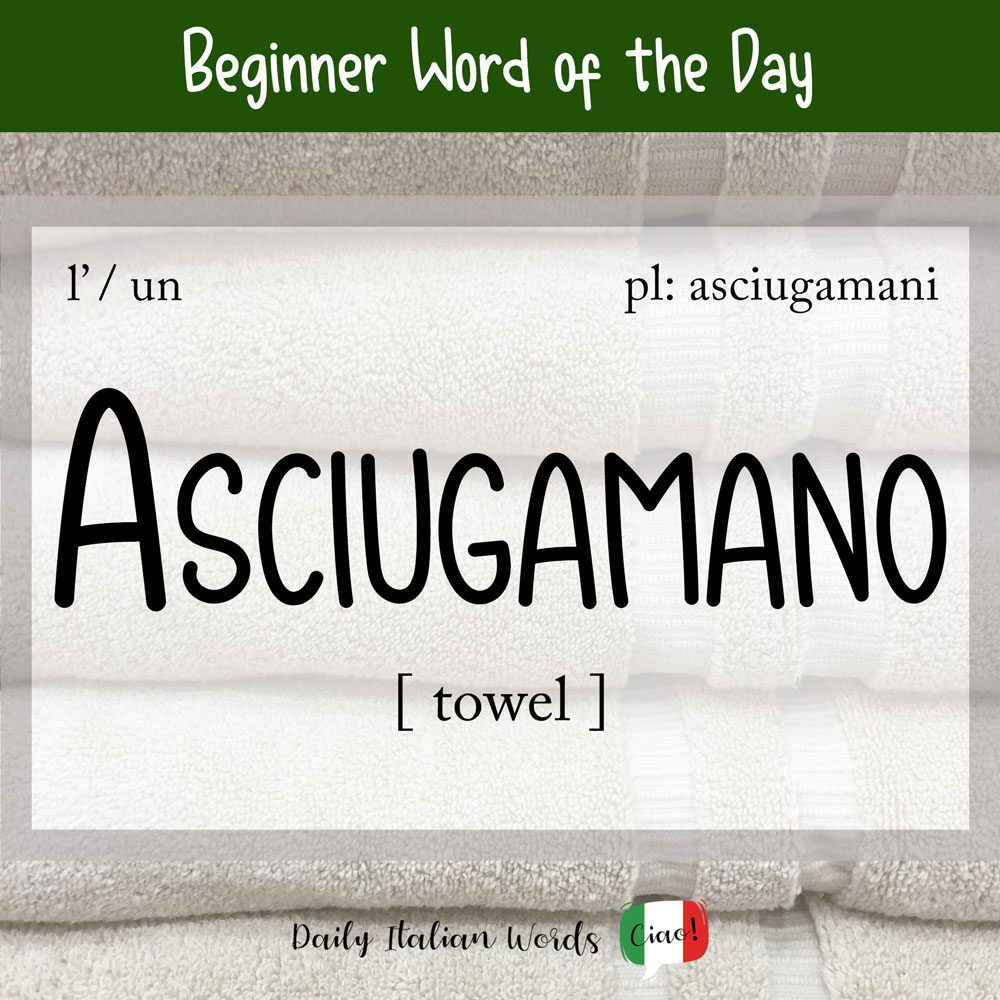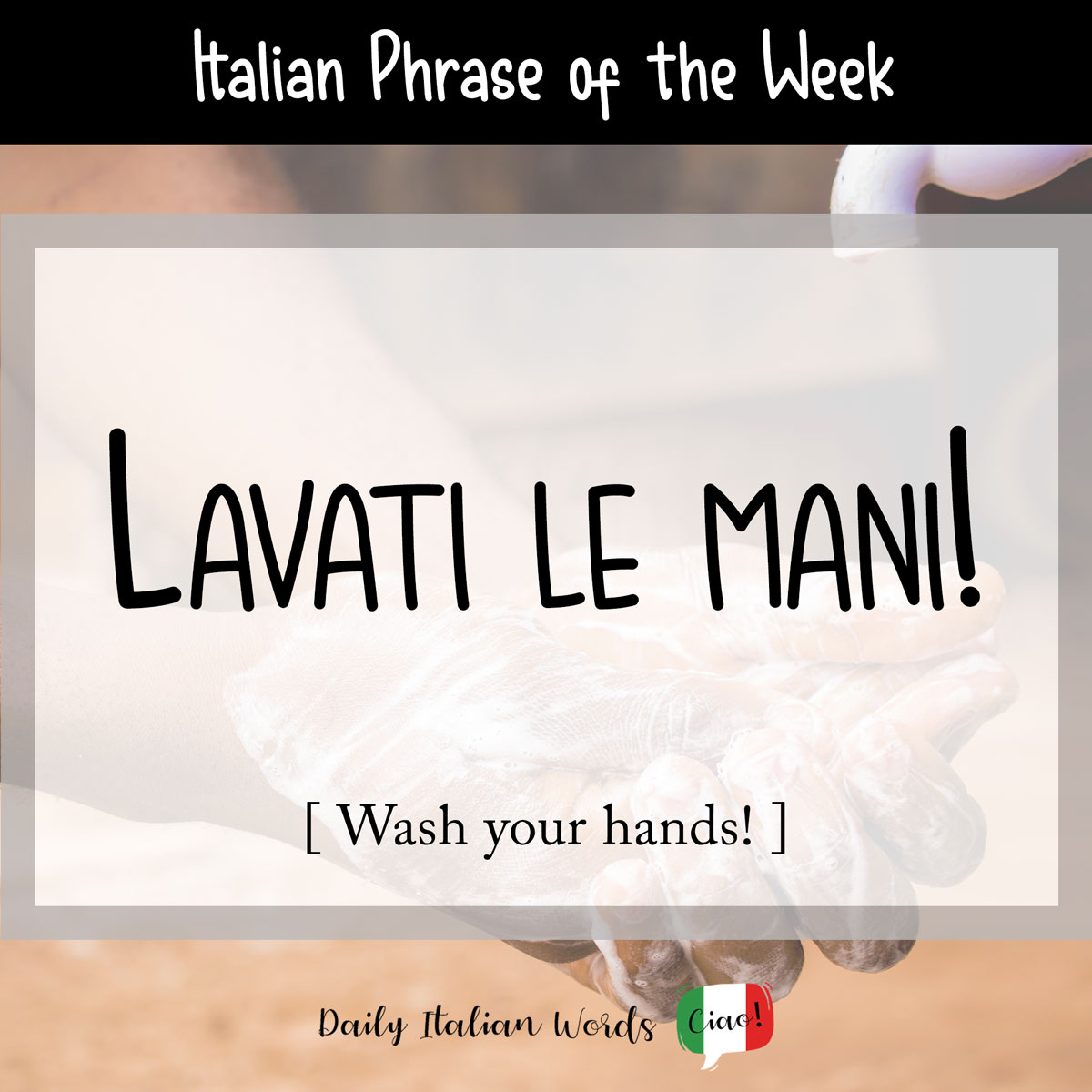Italian Word of the Day: Incubo (nightmare)
Dreams (sogni) are stories and images that our minds create while we are in a phase of sleep called REM (rapid eye movement). Most tend to be entertaining, romantic or even bizarre, but sometimes you may find yourself tangled up in a frightening incubo (masculine, plural: incubi), which is the word for nightmare in Italian. …






